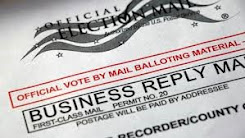Pundits increasingly describe West
Virginia Senator Joe Manchin as the second
most powerful Democrat in the country or as a royal pain. Maybe he’s both. That’s
what makes taking a hard look at the 73 - year old third term senator and
former governor of the Mountain state worthwhile. Manchin now plays a huge role
in every political calculation in Washington and he’s apparently enjoying it.
With Democratic control of the
senate hanging by a thread, Manchin’s made his mark. He blocked President Joe Biden’s nomination of Neera Tanden as budget
director and kept the $15.00 minimum wage out of stimulus legislation. He
opposes D.C. statehood, objects to universal background checks on gun purchases,
and apparently won’t back eliminating the senate filibuster.
Manchin isn’t on board
with the size of Biden’s $2
trillion infrastructure bill. He says he wants a bipartisan infrastructure
deal that doesn’t “abandon” Republicans.
So, we ask: what’s up with Manchin. We look at the same facts, but see different things:
Woodson: A Democrat in
Republican Appearance?
Understanding Manchin requires understanding West Virginia.
The state is 92 percent white, four percent black, 0.997 percent Hispanic, and
0.737 percent Asian. It’s wracked by poverty, addiction, and low household
incomes. Richard Ojeda, a West Virginia politician says the choices for high
school graduates are, “dig coal, sell dope, or join the Army.”
Manchin, nonetheless, has maintained his senate
seat since 2012. Until Biden’s
election, Manchin was relatively insignificant. Now holding a decisive vote,
he has become significant. Conservative
votes increase his re-election prospects. He is not beholden to Democrats.
They need him more than he needs them. He might be the only Democrat capable of
holding that seat.
West Virginian Christopher
Reagan, Jr. recently wrote in the Atlantic
that “Manchin does not have an overarching ideology.” True? Perhaps Manchin votes conservatively
with political calculation. He voted to confirm more than 100 of Trump’s
nominees. None required his vote. He voted for Brett
Kavanaugh’s Supreme Court nomination after it became clear Republicans had
enough votes for confirmation.
Manchin voted to save Obama Care,saying
Medicaid expansion was good for West Virginia. While he made sure top income
earners were excluded from Biden’s stimulus package, he voted ‘yes.’ He agrees that if Republicans won’t support an
infrastructure package Biden will have to proceed without them.
Will Manchin become a Republican? He’s not fond of GOP leader
Mitch McConnell who
vowed he’d “crush Manchin like a grape” in the 2018 midterms.
After his three-point victory, Manchin delivered a jar of hand crushed grape
jelly to McConnell’s office.
Manchin said of Biden in The
Hill, “I
think he’s a good human being, just a good heart
and a good soul, and he’s the right person at the right time for America.”
Manchin may not be an ideologue. But, he’s a Democrat in a
state where Democrats are an endangered species.
Henry: Mixed Motives?
It seems Manchin has different values

and goals than his fellow Democratic senators.
Other Democrats may share some of his ideas, but they don’t act on them with
the force and determination he exhibits. Whether his behavior represents
political expediency, principle, or the enjoyment of personal political power,
he walks a tightrope.
The turn in his West Virginia constituency away from its
Democratic roots likely explains some of his actions. Manchin can win in his
state, but he’s not so popular he can deviate far from the views of white West
Virginians. If he seeks another term in 2024, he’ll find
himself on the ballot
with a strong Republican candidate atop the ticket. His political position
offers little margin for error, so the last thing
he needs is being on record in support of things the West Virginia electorate would
find objectionable.
But home state political considerations
may not totally
explain Manchin. Perhaps he believes in what he espouses, even if he’s not an
ideologue. Beyond that, Manchin occupies a unique position in the American
government. He has some control over the nation’s agenda. That he can use that
control in service of his own political survival could mix with principle and
the hubris all political figures experience when other people must come to them
for things they want. Maybe all of that is going on with Joe Manchin.
Rob: All About West
Virginia
As much as any state, West Virginia symbolizes the changing appeals of America’s two parties. West Virginia
was
solidly Democratic when the party’s fundamental appeal was economic populism
aimed at white, working class voters. West Virginia has many more coal miners,
factory employees, and construction workers than tech types, suburban
professionals, and financial industry workers, now the backbone of the
Democratic coalition in blue states. Add that to the dearth of voters of color
and it’s no wonder West Virginia votes as it does in presidential elections. So,
Manchin must represent this constituency while being part of a national party
that wants a more progressive nation.
Culture plays a huge role in this. When the Democratic Party
became the party of protecting reproductive freedom, promoting LGBQT rights, and supporting gun
safety measures, West Virginia’s white voters fled. Those issues drive the
margins Republicans rolled up in recent presidential elections. Manchin knows
where the voters are in his state and he’s not risking getting on the wrong
side of them, economically or culturally.















































